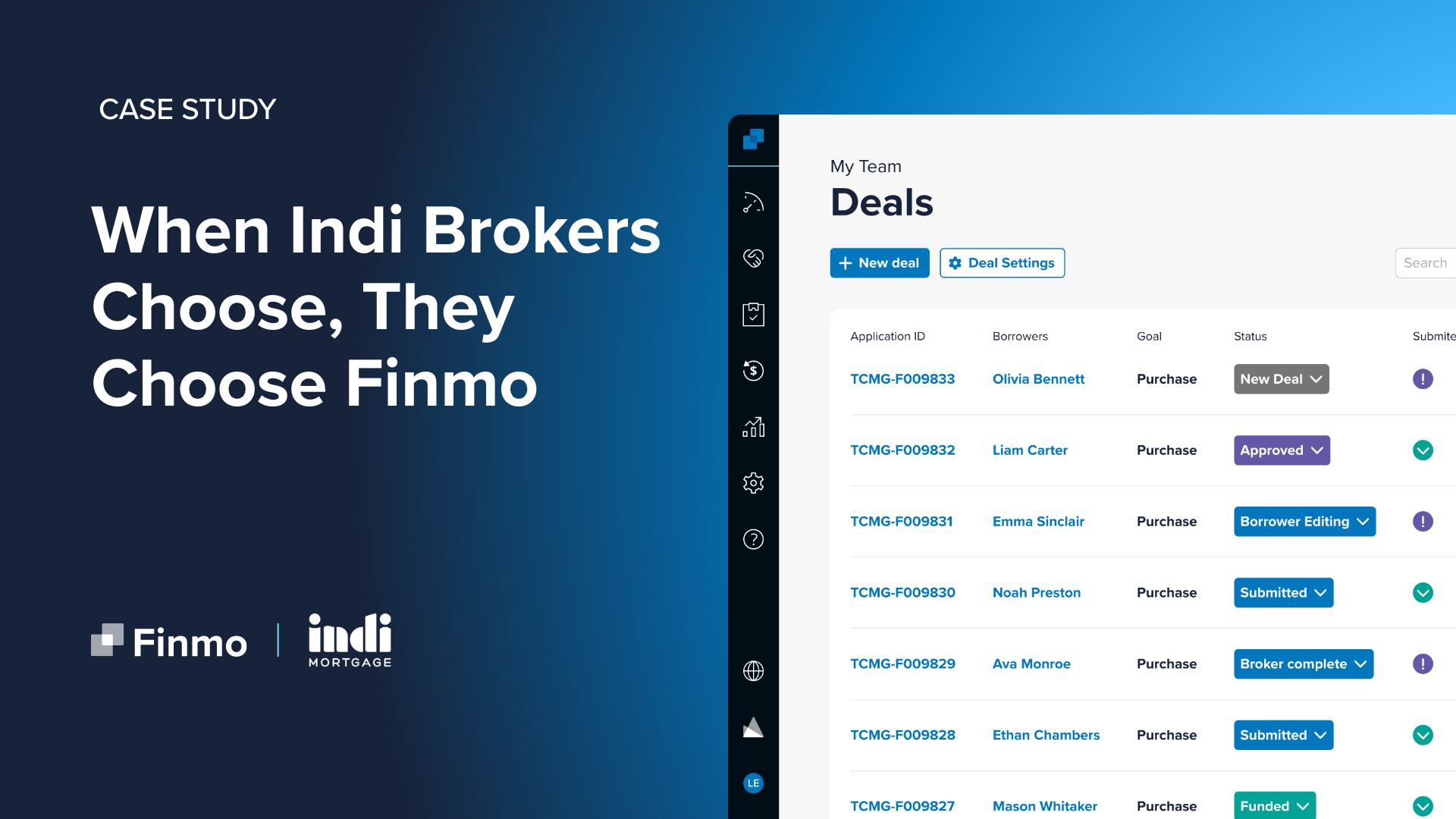
There are certain milestones in every Canadian Mortgage Broker’s career that signify their growth and level of experience. The first time you sign a deal, the first time you sign a deal of a certain size. Or the when your “call sheet” truly becomes a database.
At a certain level, it makes sense to start subcontracting parts of your work as you get busier. Chasing down documents and financials, submitting paperwork, making copies— these are things that can be offloaded to team members or assistants. But the one area of a Broker’s business, the one that should never be offloaded, is that of relationship building. If you’re good, and you end up being busy, building and maintaining relationships will become your main focus. To paraphrase one successful Broker, in a recent Facebook thread: “On-the-phone time is up, admin time is way down.” Sounds like she is successfully delegating, with her priorities in check.
Time to Evolve Beyond the Spreadsheet
While we all agree that the personal touch makes the difference when it comes to dealing with customers, there’s absolutely nothing wrong with letting technology give you a bit of an advantage. In fact, these days, you have to have plenty of technological automation just to compete. In terms of value to you and your business, the single most important bit of record-keeping you do is tracking the exchanges you’ve had with your clients, and the various files you keep on them. Sure, you can painstaking build a manually updated system using spreadsheets, and cut-and-paste. But why would you, when customer relationship management (CRM) software will do all of that for you, by keeping a record of the email exchanges and meetings you’ve had with a client, as well as the associated documents?
When you really begin to nail the art and science of CRM, you’ll be pre-scheduling all of your client follow-up into your calendars, and you’ll have access to the entire history of your exchanges with a customer. Here’s the good news: you don’t have to remember which college all three of your client’s daughters attended, or where they grew up, or the other places that they’ve held property. Add them all to your client file in your CRM, and access them as needed. Make updates by simply BCCing a private email address, which keeps a copy of the exchanges with that client for future reference.

Be a Better Version of You
The biggest benefit of CRM is that it allows you to successfully manage a larger database than you would be able to using analog systems, or worse— your memory. That ability to show professional and personal service to a larger network of potential borrowers is what enables you to succeed. If there is one way that you can compete with the banks and win, it’s here. It’s not simply that you will work harder for your clients or negotiate a better rate; it’s also that you can work smarter, and offer a personalized and consistent level of service that a bank simply can not maintain. And no one has to know about the wizard behind the curtain.
When a Prospect Becomes a Lead
Some of the people on your list are friends and acquaintances, even family members. Others are actually on the lookout for a mortgage, or have done business with you before. Having purpose-built CRM software lets you distinguish between these details, or stages of lifecycle, of your clients. For example, when an acquaintance or newsletter subscriber asks a question or expresses interest in working you for their mortgage, it is time to upgrade them to a “Lead” in your records, and start thinking about how you can show them value. Should you be scheduling more frequent check-ins and follow-ups? Is there any info you can pass along that they will find useful? Is it time to set up a meeting? Good systems allow you to take the worry and guesswork out of these questions, and build a process that will scale up as your business does.
When a Prospect is Just a Prospect
One of the other key benefits of a good CRM is that you can protect yourself against becoming complacent with the folks on your list who aren’t “ready right now” to pursue a mortgage. As indicated above, while sometimes it makes sense to avail yourself when someone has expressed interest, it’s also useful to know when your follow-up should be scaled back. Checking in less regularly is sometimes prudent, and you can skillfully navigate the cadence of the appropriate follow-up by maintaining good records. Someone told you to check in in six months time? Put it in your calendar, and track the exchange when you touch base. When you do this right, you will be top of mind, and the first choice when it comes time for them to buy property.
When You are Not Enough
As we touched upon above, sometimes it makes sense to delegate some of the work involved with getting a deal done. Often, this means that you are not involved with the more tedious but crucial elements of the deal process: financials, documents, and other sundry required follow-ups. When you entrust these duties to a team member or assistant, the last thing you want is for those details to be collected onto disparate systems, and hidden from your view. After all, since you’re the one managing the relationship, you’re going to need to know all the details, and have them readily available. CRM saves the day here too, as it lets you work in a collaborative fashion. Add team members to your account so that all of your record-keeping is in sync, and the exchanges that your team has with your clients are consistently tracked and accounted for.
With all of these benefits, it seems a folly for a licensed Broker to do it any other way.


